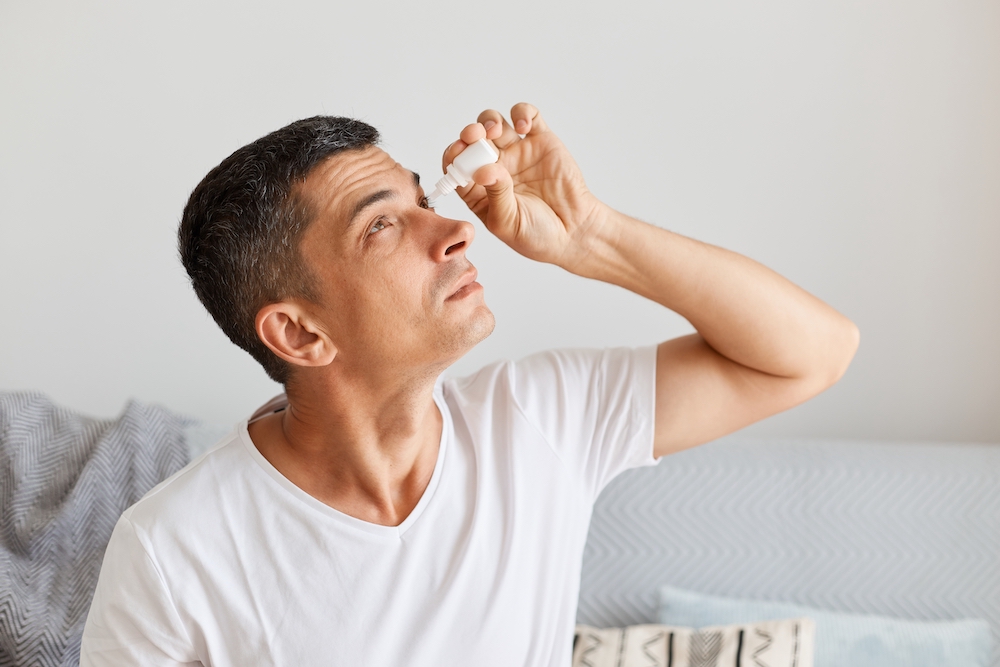
Ocular allergies, also called eye allergies or allergic conjunctivitis, are common eye problems. Around 40 percent of people in the United States experience ocular allergies, and the figure is rising.
An allergic eye disease happens when the eye reacts to something that irritates it. It releases histamine to fight the irritant or allergen. As a result, the eyelids and the eye tissue (conjunctiva) become red, itchy, and swollen. The conjunctiva can tear and cause a burning sensation, resulting in problems with your vision.
What Causes Ocular Allergies?
Ocular allergies are a reaction to outdoor or indoor irritants that enter your eyes. Examples of these are:
Mold
Pollen from ragweed, grass, and trees
Dust mites
Spores
Pet dander
Smoke
Cosmetics, perfumes, or medications can also cause your eyes to have an allergic reaction. Exposure to these allergens may trigger a flow of inflammatory instances that cause many of the symptoms of ocular allergies.
In severe cases, the allergens may trigger an allergic reaction that may damage the cornea, causing scarring and permanent vision loss.
Diagnosing Ocular Allergies
Eye doctors can usually diagnose ocular allergies easily. They conduct assessments to check for their symptoms. The assessment may include reviewing your health history and your family's medical history of ocular allergies.
Your doctor may also ask to know whether:
You wear contact lenses
You have symptoms of ocular allergies
You are currently taking any allergy medications. If yes, are the medicines successful in easing your symptoms?
Your eye problem prevents you from performing your daily activities
You experience ocular allergy symptoms often. How often?
Your eye doctor will also perform a slit lamp test to check for any swelling in your conjunctiva and the blood vessels in your eyes. They may also examine a specific white blood cell in your eyes. The test is necessary if your allergy is severe or it is not apparent that you have ocular allergies.
A novel option is AllerFocus™ which provides pain- and needle-free test for as many as 78 of the most common airborne and environmental allergens.
Treating Ocular Allergies
The best way to treat eye allergies is to avoid contact with the allergens. Do you know what allergens to avoid? If not, an allergist can do a blood or skin test to help identify what is causing the issue.
Staying Clear of Allergens
Wear protective eyeglasses or sunglasses when outdoors to prevent pollen, dust, or smoke from entering your eyes.
Likewise, close your windows and keep your air conditioner clean to reduce your exposure to pollen and irritants when indoors. If mold triggers your allergy, maintain a humidity level of 30 or 50 percent in your house.
Eye Drops and Medications
Your eye doctor can prescribe artificial tears to wash the allergens away from your eyes and decongestants to relieve eye redness. Oral antihistamines, mast-cell stabilizers, and steroid eye drops can also help treat ocular allergies. But never use them without your doctor's supervision because of possible risks.
If the symptoms do not go away with avoiding irritants, eye drops, or medications, your doctor may administer immunotherapy or allergy shots. The injections help your body become immune to eye irritants. It is vital to ascertain what causes your allergy before taking any medication. It’s what your eye doctors at Norwood Family Eye Care do best.
For more on ocular allergies, visit Norwood Family Eye Care at our office in Bartlett, Tennessee. Call (901) 617-8095 to book an appointment today.










